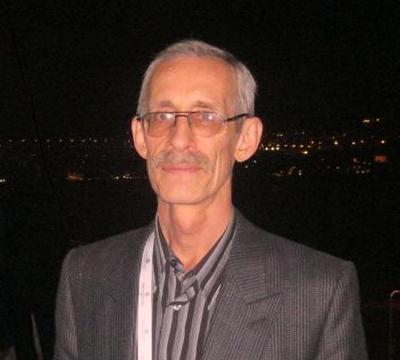The idea, according to analyst at the Strategic Cultural Foundation Nicolai Dimlevich, is to foment instability throughout the Caucasus and in Transcaucasia and then call for all the zones of conflict to be passed into UN, EU and/or NATO hands for safekeeping, since Russia would be proven to be incapable of ensuring the security of local populations. In this scenario, the US and NATO "benefit" from war in the region, as it is an opportunity to weaken Russia and extend control over the region. Terrifying thoughts, but unfortunately perfectly "rational".
The failed war against Russia in 2008 also left behind storm clouds in Saakashvili's own Tbilisi, where opposition to his reckless political gambits has hardened. Even as Saakashvili blusters, key Georgian opposition figures have been visiting Moscow since late last year, disowning their president's plans. "We are prepared to receive those, who come not for fighting and trickery, but for making some changes," Russian Deputy Minister Gregory Karasin told reporters in Geneva recently. Karasin quoted Georgian parliament's ex-speaker, current leader of the Democratic Movement-United Georgia, Nino Burjanadze: "When Saakashvili made a decision to wage war in summer 2008, I am quoting her "he intended to make Russia bend on its knees and to cause tension in relations with Russia, but Saakashvili lost the war and put the country in a tragic situation.' We want to have open and pleasant relationship with Georgia."
Former Georgian prime minister Zurab Noghaideli was received by Russian Prime Minister Vladimir Putin in December, the first time that the Russian leader openly met with a Georgian opposition leader. He openly advocates cooperation between his Movement for a Just Georgia and United Russia, and has developed close ties with the Union of Georgians in Russia. Noghaideli has repeatedly stated that without a radical change in Georgia's foreign policy priorities his country's "destruction will continue", warning that "there is danger of Georgia's further dismemberment" if Tbilisi's current course continues.
"Saakashvili understands that his rule is in danger, and therefore he is prepared to plunge the country into a new war. He prefers to be a president banished from Georgia by Russia than to be banished by his own people," said Burjanadze, condemning the TV station beamed into Ossetia which features a talk show hosted by the late Chechen rebel leader Dzhokhar Dudayev's widow. Giorgi Khaindrava, a former Cabinet member and now an opposition leader, said. if the channel devotes coverage to the insurgency in Russia's north Caucasus, Putin may declare it a terrorist threat and use force to shut it down. "This isn't just fantasy. It could happen."
The entire spectrum of Georgia's politicians agree. Conservative Party leader Kakha Kukava says, "Russia doesn't have any strategic plan towards Georgia nowadays. It is in Saakashvili's interests to provoke Russia and attract international attention to obtain support." Even "some of the people close to President Saakashvili may also agree, but they can't say so openly because they're afraid of him," asserts Noghaideli.
Perhaps Saakashvili's bluster is just hot air. But the war exercises with the US and the planned US bases aren't. Nor is the fact that the south Caucasus has become a transit route for drugs to Europe and Russia. Russian Federal Drug Control Service head Viktor Ivanov said last week that the ports of Batumi and Poti are "the main ones in drug trafficking, and the Georgian city of Kabuleti is one of the key points of trafficking of Afghan heroin."
Only Saakashvili seems to think it's possible to reunite the two breakaway regions with Georgia any time soon. For better or worse Abkhazia is ever more securely tied to Russia, as confirmed by President Sergei Bagapsh's visit to Moscow last month to commemorate 200 years since Abkhazia was absorbed into the Russian empire. Though not Moscow's favourite in the 2004 elections, Bagapsh has agreed to establish a joint military ground force for the next 49 years and to upgrade an existing Russian base at Gudauta, where 1,700 Russian troops are presently stationed. He also proposed that Abkhazia join the Belarus, Russia and Kazakhstan Customs Union even though neither Minsk nor Astana has recognised Abkhazia as a sovereign state. Ironically, says analyst Sergei Markedonov, if even a half dozen European countries were to recognise Abkhazia, "maybe Bagapsh would favour European integration." Carnegie Moscow Centre analyst Alexei Malashenko suspects that Turkey may set things in motion. "Turkey is ready to establish special relations with Abkhazia."
The mouse's defeat in 2008 also was an important incentive for Ukrainians to turn against their Orange revolutionaries last month. Incumbent Ukrainian President Viktor Yanukovich is merely expressing the will of the people when he dismisses any future move to join NATO and tones down the anti-Russian rhetoric. When Saakashvili goes, a similar move will surely take place in Georgia, as a future president tries to repair relations with Russia, though -- hopes the Pentagon -- leaving by-then existing US bases in place.
(Note: You can view every article as one long page if you sign up as an Advocate Member, or higher).





